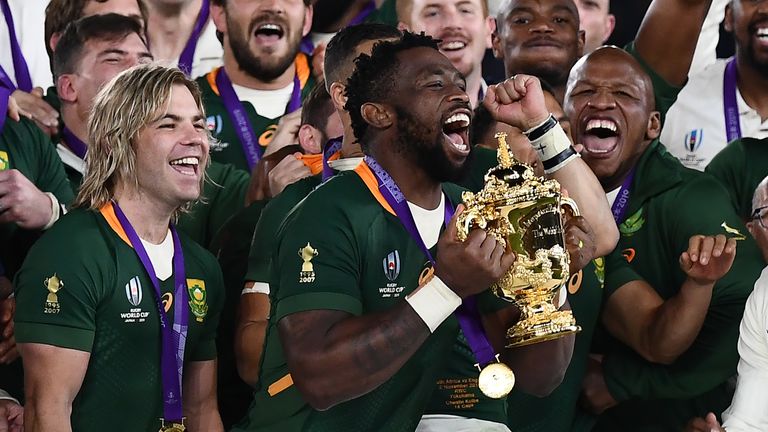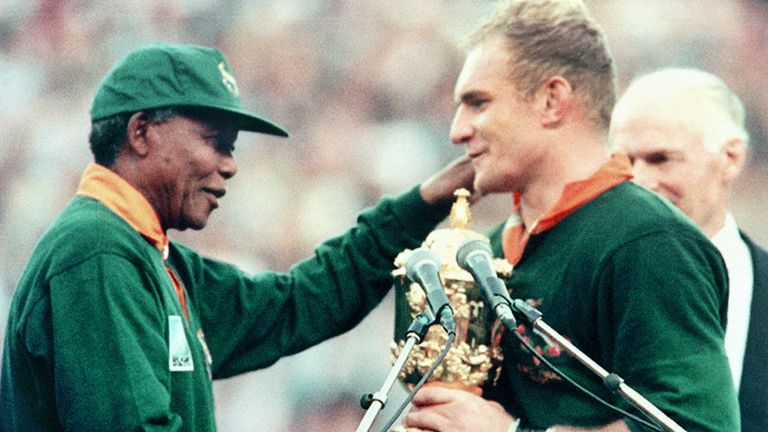Siya Kolisi:聽The first black man to lead South Africa to Rugby World Cup glory
The country has come a long way since it first appeared in the tournament in 1995.
Saturday 2 November 2019 13:50, UK
South Africa's Rugby World Cup triumph on Saturday is historic for more than one reason, after the team was captained by a black man for the first time in the country's history.
The country has come a long way since it first appeared in the tournament in 1995, which was hosted and won by South Africa, when only one black player was on the pitch representing the country.
The now-famous images of Nelson Mandela handing the trophy to then captain Francois Pienaar were beamed into living rooms across the world, set against the backdrop of a country only a few years out from apartheid.
Now, 24 years later, Siya Kolisi becomes not only the first black man to lead a South African rugby team, but the first to lead them to World Cup glory.
Kolisi was born to teenage parents in 1991 and raised in the poor township of Zwide in Port Elizabeth on the southern tip of South Africa, where his mother took him to live in a small house with five other people.
Living conditions were cramped, so he slept on a pile of blankets on the floor, and often all he ate in a day was a slice of thick bread and some powdered milk.
He was brought up by his grandmother after his mother died when he was 15.
Zwide has a population that is 98% black and is widely regarded as an impoverished area.
In an interview with Rugby World, he said that despite his friends having toy cars to play with, his favourite toy was a brick, and he would push it around town.
He told the magazine: "I loved that brick.
"I just enjoyed life when I was young and wanted to be happy with the things I had. I never dreamed of being a rugby player. All I wanted was to have a good life and make a good life for my family."
Kolisi credits rugby as his way out of hardship, and the 28-year-old started his playing career in his hometown, where he played for his local team, the African Bombers.
His teammates would call him "Shrek" due to his appearance, and he played as a prop-forward.
The team was so poor that there were never enough socks, boots or jerseys to go round, and first aid was nothing more than pouring cold water on an injury.
He impressed local rugby scouts at the age of 12, and was admitted on a scholarship to Grey High School - a prestigious sporting school that has produced world champion cricketers and rugby players in the past.
As a result of his talent, Kolisi spent a few years playing youth rugby for league teams in South Africa before joining the national squad's under-18s set-up.
He made his professional debut in 2011 where he played for Western Province, before moving on to Stormers - a Super Rugby team in Cape Town, where he is now captain.
Now a flanker, he first ran out for South Africa in 2013 as a replacement in a game against Scotland, and made his World Cup debut two years later.
Since 2017, he has been a senior member of the South African squad, and becomes the third person from the country to captain his side to a World Cup triumph.
Today, South Africa's team is at its most diverse - with 11 black players in the 23-strong World Cup squad.








